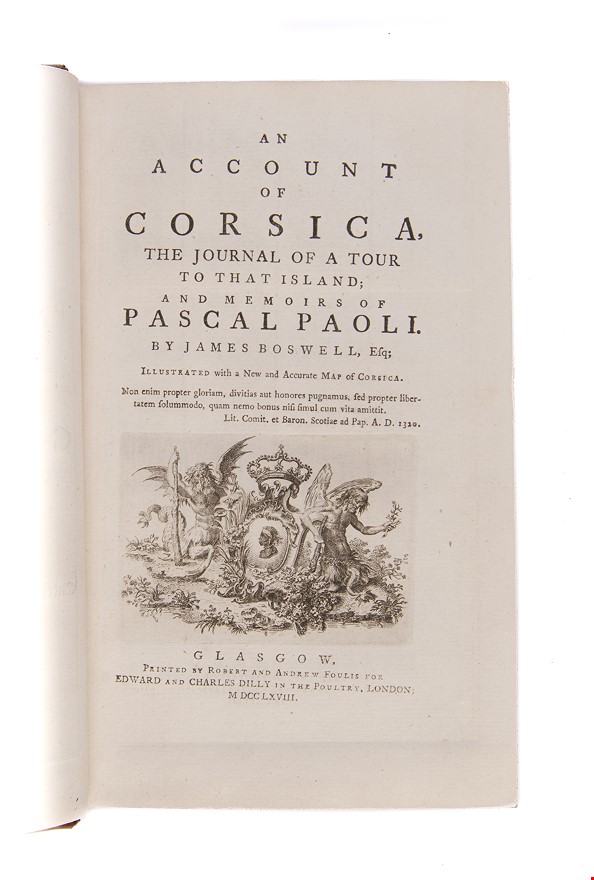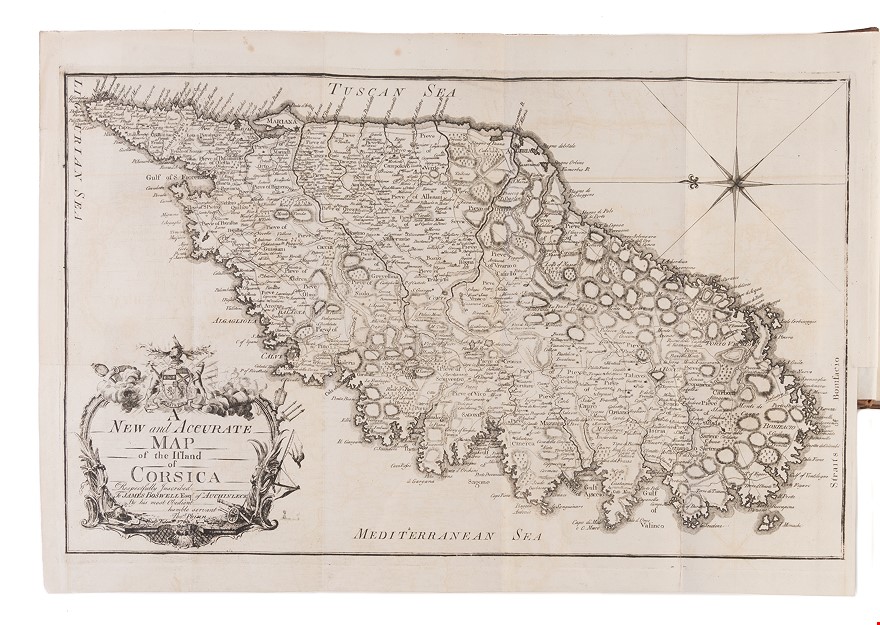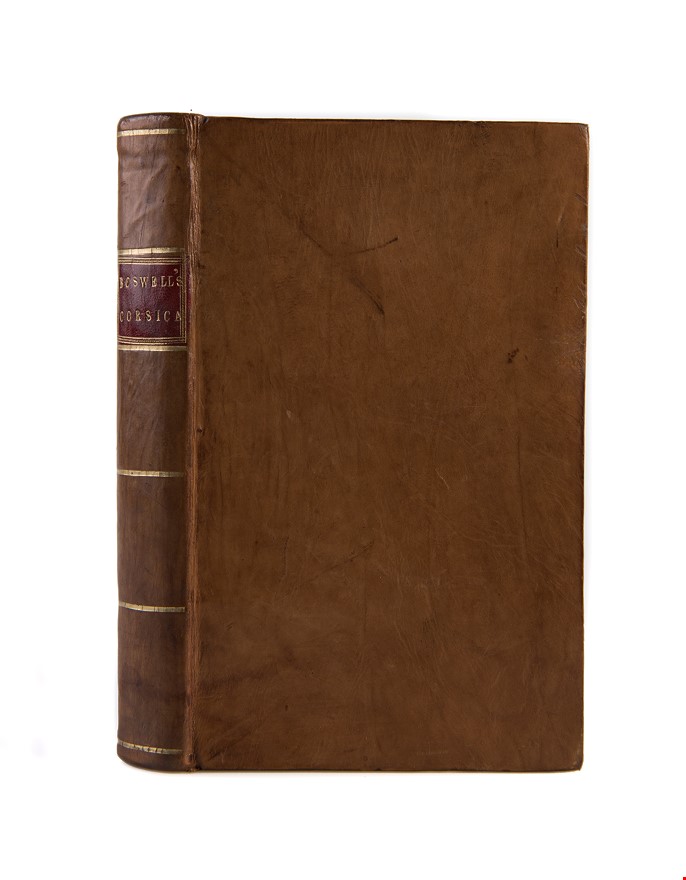An Account of Corsica,
BOSWELL James (1768.)
£3500.00 [First Edition]
Please contact us in advance if you would like to view this book at our Curzon Street shop.
A VERY FINE COPY
the Journal of a tour to that Island; and memoirs of Pascal Paoli. By James Boswell, Esq; Illustrated with a New and Accurate Map of Corsica.
First Edition. 8vo. [203 x 125mm]. xxi, [3], 382 pp., engraved vignette with the arms of Corsica on the title; with the half-title and the large folding engraved map (first state before the addition of the imprint). A very good clean copy with just a small tear to the edge of the map near the guard (not touching the plate). Contemporary polished calf, smooth spine ruled in gilt, red morocco label, red sprinkled edges (very slightly rubbed at the edges but otherwise fine). Morocco-backed cloth case.
Glasgow: for Robert and Andrew Foulis for Edward and Charles Dilly, 1768
Pottle, Boswell, 24; Gaskell, Foulis Press, 473; Rothschild 442. Boswell took a close interest in the printing and this copy has the two cancel leaves (E2 & Z3, the former with the line-break “Is- | tria”) and the corrected spellings on p. 93, 184, 296.
A fine copy of James Boswell’s “first important work” (ODNB) which drew international attention to the cause of Corsican independence and made the author’s name. With Pasquale di Paolo as its president, commander-in-chief, and chief magistrate the Republic of Corsica had declared its independence from Genoa in 1755. Boswell visited the island in the Autumn of 1765 at the end of his Grand Tour of Germany, Switzerland and Italy so well-documented in his Journals.
Boswell’s Account of Corsica was published on 18 February 1768. “With its reports of the gallant islanders and a Plutarchan depiction of Paoli paralleled with several classical heroes. It was an immediate success. The work was widely read and translated, stimulated great interest in Paoli and the Corsican cause, brought its author wide fame in Britain and Europe, and found an interested readership in America. It attracted the notice of the French government (which had a translation made), and though Boswell’s ambition for British intervention was not to be fulfilled, he probably influenced Britain’s decision to send secret supplies of arms to the Corsicans.” (ODNB).
On 2 March 1768 the Glasgow printer Robert Foulis wrote to Boswell at Edinburgh:
“I rejoice to hear of the success of the History of Corsica, … I expect to hear of it being soon in French & Italian, and that it has been burnt by the hand of the hangman at Genoa, which, in my opinion, it well deserves. …” (Gaskell, Foulis Press, p. 400).
That month The Critical Review took a cautious and, it soon turned out, prescient view of Paoli’s fledgling state: “MR. Boswell was impelled by a noble, but unusual, spirit of curiosity to visit the infant state of liberty among the Corsicans; and he is to be envied that he saw it to greater advantage than any British subject, perhaps, ever can view the same in future. He found in it all its native, genuine, charms, before faction could spring from security, luxury from plenty, or corruption from luxury; evils which so soon engender in a settled constitution. The eyes of all the sons, and we may add, daughters, of Freedom, are now fixed upon the plan of government which the illustrious general of the Corsicans shall adapt for his brave countrymen; and they are in hopes it will be as free as human foresight can contrive, from the oversights which the experience of all ages has proved to be so fatal to other free states. … “Upon the whole, our author has, in the person of Paoli, realized all the ideas which the most vigorous imagination could form of a chief, a patriot, and a legislator, embellished with the ornaments of an understanding cultivated by polite literature.” - The Critical Review, Vol. 25 (March, 1768), p. 172-81.
Corsica’s dozen years as a representative democracy ended after a French invasion in the summer of 1768 (Genoa having secretly sold the island to France in 1765) a few months after the publication of Boswell’s account. General Paoli led a guerrilla campaign against the French but was forced into exile in England after the Battle of Ponte Novu of 8-9 May 1769. In London, with ‘Corsica Boswell’ as his champion, he was publicly fêted, granted a pension by King George and elected a Fellow of the Royal Society. He returned to Corsica in 1790 as president of the French Department of Corsica, a role he retained in the short-lived independent Anglo-Corsican Kingdom (1793-5), until his second and final exile to Britain.
Provenance: No bookplate or any other sign of early provenance. Unidentified bookseller’s pencil notes on the front and rear pastedowns. From,a private Boswell collection, anonymous sale, Sotheby, 12/12/2017, lot 75.
Stock Code: 231844






